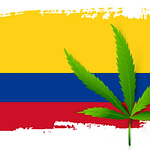Today, I wanted to share some recent work on digital power and free speech in Latin America: ‘Taming the Titans’ - a podcast made with human rights group Article 19 - written and presented by me.
The unchecked power of social media platforms (and by extension of men like Elon Musk and Mark Zuckerberg) is an issue I’ve been working on for about a decade with civil society groups like Privacy International and Article 19.
It’s something I feel really passionate (furious) about, so it’s been exciting to see growing interest in the effects of that relationship on countries here in Latin America from NGOs and international bodies - and even regulators and economists too!
For this podcast, we focused on the sheer size and market power of social media platforms, and asked how that situation affects democracy and human rights.
Spoiler: the answer is ‘a lot - and definitely not in a good way.’
But there is hope - I spoke to some fascinating thinkers across this region who have some really interesting solutions to this urgent issue.
Titans run riot in our online lives. A tiny number of massive companies dictate the terms of public debate, free speech, and privacy - all in a race to profit from our attention, our data, and our content.
How were these giants born and how did they come to dominate the digital world with these extreme concentrations of power and resources? What does it mean for us - and how might we take that power back?
These companies are everywhere - in our pockets, our offices, and our homes - and these companies and their services pervade our lives. The decisions of a few executives now have more influence over our rights online than the decisions of elected officials - and those decisions affect the entire planet.
In this series, I’ll be zooming in on the tiny number of companies on whom we rely for communication, information, discussion, and even public services: conglomerates like Meta, which owns Facebook, Instagram, and Whatsapp; and Alphabet - owner of Google and Youtube, as well as Microsoft, Apple, Amazon, TikTok, and of course Twitter.
These are not neutral spaces - nor are they are managed in the public interest: they are run for profit, funded by ads in an economy of attention - grabbing it, holding it, and manipulating it… All the while collecting and selling mountains of data on all of us, fostering screen addiction and distorting public debate.
Not to mention making vast sums of money - this is how many of the richest men alive made their billions - a lot of the time with abusive business practices and violations of regulation.
As well as doing damage to online rights and democracy through invasive data practices and (at best) lax content moderation, their policies can spill over into physical violence - from the United States Capitol Attack to the genocide in Myanmar and ethnic violence in Ethiopia.
This isn’t news to most of us, we shrug, make jokes about our phones listening to us, and get on with it. We know we don’t have anywhere to go, any real options, any other platforms where we can find our friends and families and favourite outlets - so we keep scrolling and keep creating profit for the same big tech companies. We feel stuck - we are stuck.
But hope may be coming over the horizon: as the harms become undeniable, a conversation is gaining momentum around competition law - which has been disastrously under-enforced for decades, but which can form checks and balances on the hulking corporate powers we currently face.
All eyes are on Europe and the US right now, but Latin America is the next key battleground - a vast market for online services and a very different backdrop for this debate.
For each episode, I spoke to one expert from Europe - where the conversation is crystallising into new legislative project, the Digital Markets Act, and one from Latin America, where the conversation is gaining force.
The first episode provides a guide to how we got here - how did power concentrate in the hands of the (very) few? How did such a tiny number of men end up with the keys to the Internet? Monopolies expert Nick Shaxson and free speech campaigner Martha Tudón explain.
The Internet was born as a decentralised network - surrounded by ideals about horizontal communication and global connectivity. It functioned peer-to-peer with interoperable services, but we have seen extreme accumulations of corporate power at various layers of its infrastructure, from hardware, cables, routers, switches right up to payment systems and lines of code.
These accumulations are clearest at the level of our gateways to the Internet: search engines, social platforms web browsers and apps. Those companies grew vast, consolidating their market positions - extending tentacles into adjacent markets too.
Particularly in the social media market, very (very) big money is being made amid (very) little competition - and these companies have often decided it’s better to buy than compete, buying up smaller companies and absorbing bigger ones - crushing competition and gaining control over huge swathes of our information ecosystem.
In addition to piles of money, these companies have mountains of highly-profitable data - even more profitable due to these mergers and acquisitions. The sheer quantity of information held by companies like Meta is astonishing - and not well-understood. Your every click, keystroke, linger, like, or share on Facebook and Instagram can be cross-referenced and analysed. Ditto Alphabet - your search terms on Google and your activities on any site with Google Ad Services or Youtube videos embedded.
All of this puts the existing titans at an unthinkable advantage over other companies - data is a huge asset and sits at the very core of the ad-tech profit model these companies rake in their billions from… And the bigger they are, the more they know.
In Episode 2, I spoke to the head of Colombian digital rights group Karisma, Carolina Botero to find out whether the European Model can be applied in Colombia, what the big obstacles are, and how it might be done.
For most of us, search engines and social media are our entry points to the Internet - for many of us, they are also our final destination a lot of the time - very few of us are now typing in website addresses into browsers from memory - most of us are ‘Googling’ or opening applications.
Google’s search engine, for example, has more than a 90% share of the search market worldwide, and is the most visited website on the internet. It processes around one hundred thousand searches per second - and its most searched keyword? Facebook. The second and third are YouTube and Amazon. The sixth most googled word… was the word Google.
These platforms have billions of users, but users are not the real customer, not as far as making a profit goes. The customer is the company which buys our data and pays for advertising space: this makes us, our content, and the time we spend on these platforms - the product.
Though the men at the helms of these companies often claim to care about human rights - including freedom of expression (X/Twitter’s owner and CEO Elon Musk is a self-proclaimed ‘free speech absolutist’), the executives who run these companies are men are unqualified, uninterested, often both to be maintaining freedom of expression, privacy, or other human rights.
Even when real scandal hits, like Cambridge Analytica or the revelations of Facebook whistleblower Francis Haugen, companies most often respond with empty displays of contrition, or with cosmetic changes to terms or services.
Sometimes - usually when obliged or in response to huge outcry - these companies do respond to human rights violations which they are complicit in or bear some responsibility for. But these actions often deepen the lack of accountability rather than alleviate it, without a systematic approach or integral policy - arbitrary, inconsistent across platforms, or without underlying principle.
But it actually doesn’t matter whether or not these CEOs are qualified or interested: our human rights should never be contingent on the whims or decisions of single companies or men, even were these companies to be run by the ideal candidate or candidates for human rights.
What we need are human rights systems, independent and rigorous rule-making, with consistent and transparent enforcement of rules - plus safeguards and mechanisms in place for when we need to appeal or review those rules or the way they are implemented.
But this is not even close to where we are. The power currently held by single companies - and even single people - is dangerous for human rights, for media plurality, and for democracy.
So, we need to redistribute that power.
Competition law offers us one way to do that: pro-competitive rules can bring fairness and openness back to the market - loosening the grip of dominant companies on the online world, giving us some options - giving us some power back.
For Episode 3, I shot for shred of optimism - I spoke to Argentinian free speech expert Agustina Del Campo and ARTICLE 19’s law and policy expert Maria Luisa Stasi. We chatted about competition law and its potential to heal our broken system and improve the civil rights situations for millions of us worldwide.
As the harms caused by the dominant digital companies have become utterly undeniable, and the impunity has become so stark, the tide has started to turn.
Last year, the European Union passed The Digital Markets Act, poised to cause a sea change as it starts to be implemented in the coming months. The Digital Markets Act - aka the DMA - is the most ambitious legislation so far to tackle the issues of extreme power concentration and anti-competitive behaviours in digital markets. Its two central goals are market contestability and fairness.
In Episode 4, I tackled surveillance and privacy - and the ways in which fears about technology have shifted between the 20th Century and the 21st - as well as the ways we have quietly normalised massive violations of rights and privacy, keeping our surveillers in our own homes and pockets.
Mexican digital rights expert Luis Fernando García and Privacy International’s Tomaso Falchetta lay out the urgent issues we face as these companies accumulate, cross-reference, and sell information about us.
Civil society and analysts spent much of the 20th century concerned by ‘Big Brother’ - an intrusive, ever-present surveillance state - but the digital surveillance capacities born in the 21st century have created a new threat: ‘Big Other’ - corporations which watch us more closely than any state apparatus ever has. The difference is, we’ve put Big Other in our own pockets and homes.
The price of entry to use dominant social media platforms and search engines - the ones billions of us are on - is surveillance. To use services, we hand over an amount of data most of us don’t understand or meaningfully consent to.
In the early 2000s, when Google started harnessing data from our behaviour on its platforms, this data would be plugged back into the service itself - used to improve Google’s own services.
Those days are long gone: the huge amount of personal data companies collect is now used to create detailed profiles and predictive models, to guess (with remarkable accuracy) how people will respond to certain cues, certain ads, certain messaging - even certain fonts and images.
In the E-Commerce world, Amazon now uses that data to manipulate their own marketplace - they know what is selling, to who, and at what price, and design products to beat or push out competitors - often sellers on their own platform.
Big Brother and Big Other aren’t mutually exclusive: the 21st Century has seen massive state surveillance as well as from the private sector, with concerning overlap and cooperation between the two structures of surveillance. Data from FitBit, Amazon Echo, and ever pacemakers has been used in investigations and legal cases, and governments have made numerous attempts to deputise Big Other for monitoring - particularly terrorist content.
The absorption of multiple companies under umbrellas like Alphabet and Meta - and the arrival of so-called “smart” devices - wearables and web-connected appliances - known as the “Internet of Things,” allowed these companies to become shapeshifters, working across various applications on our phones and computers, as well as being quietly present in our homes like Amazon’s Alexa or Google Nest.
That data collected from this nebulous range of products is sloshed between them and shared with the parent company, as well as being sold on to third parties.
Massive data collection allows tech giants to strengthen their monopoly power and erect barriers to competitive entry. But that’s not the only issue with this kind of surveillance, storage, and analysis - these companies know more about us than we understand or consent to. They then sell that information to anybody they like - often in breach of data protection rules, which are very rarely enforced.
This is the very core of the Big Tech business model - it’s toxic, invasive, and really really bad for our rights to privacy and data protection: in fact, current ad-tech is fundamentally incompatible with those human rights.
The effects are all too real, both online and off - from discrimination on ethnic and religious grounds to insurance prices, as well as an array of political risks for those who dissent under authoritarian governments. The full effects of this new online architecture of surveillance and discursive control are still emerging - both in terms of its psychic toll on us as individuals, and its ramifications for us - as nations or as a global society.
We don’t have the full picture - but one thing is clear, we need a radical, structural overhaul.
The lack of competition in the market contributes directly to this scenario - principally in creating the sense of resignation and futility - a reluctant acceptance - which pervades our interactions with these companies. We know we are being spied on, but where is our collective outrage? Where is our protest?
We shrug, we joke about our phones listening to us, we keep scrolling, albeit unnerved by that ad for a knee-support we’d only worked out that morning you probably needed… This not even to mention the more sinister revelations of recent years, most memorably the Cambridge Analytica Scandal.
We know we’ve got nowhere to go if we want to keep using these services - which most of us do: they are now so embedded in our lives and so key to our social lives. The lack of options in the market feeds directly into our normalisation of a massive erosion of our most fundamental rights.
So, could the new movement towards legislation - particularly the EUs new regulatory framework, the Digital Markets Act, restore the rights we have been slowly losing for decades?
In the final episode, I looked at the movements happening across the region to try and keep these titans in check, and what the future might hold for social media in the region, focussing on a crucial force - civil society, groups of citizens advocating for human and democratic rights and for the good of societies.
But it's not easy for the civil society's voice to be heard. In this episode, I chatted with experts from two top consumer rights organisations - one from each side of the Atlantic: Vanessa Turner and Camila Leite Contri, from the Study Center on Competition Law and Digital Economy, coming to us from Sao Paolo, Brazil.
The obstacles are substantial, facing extremely powerful and notoriously secretive companies with huge budgets for lobbying and influence in very high places. Also, we face strong resistance from private and public enforcers who are reluctant to open up the dialogue to other stakeholders, especially civil society groups.
But a global debate is coming: legislators and regulators in different parts of the world will need to adapt emerging regulatory tools and concepts to their context and markets.
Though the companies are the same giants across the globe, taking account of specific political, economic and social contexts will be crucial to these new frameworks and rules really working - and working for the people in those jurisdictions.
Equally crucial will be for civil society to be ready and properly equipped to advocate for the needs of people - especially in a context where the huge lobbying power of companies like Alphabet and Meta create a massive inequality of arms, and in situations where regulators and enforcers will have less resources and tools than the DMA and its enforcers can provide in the European context.













